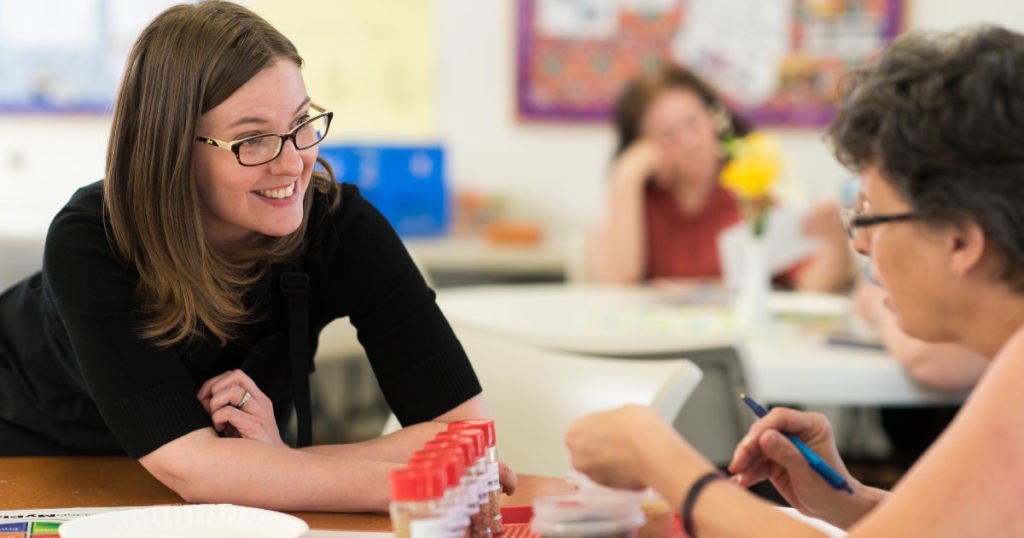
Ideas are good, but putting them into action is better. Thanks to renewed funding by Bob Moore, founder of Bob’s Red Mill Natural Foods, four new community-based projects are up and running as part of the Moore Family Center’s Healthy Community Outreach Program.
This statewide program works to improve the nutrition and food environment in underserved communities in partnership with colleagues in the OSU Extension Service.
Most importantly, it empowers local communities to work together to improve the lifelong health of Oregonians in ways that stimulate innovation and collaboration.
“We’re excited about these projects and their potential to impact people where they live, work and play,” says Professor Emily Ho, director of the Moore Family Center.
“The Moore Family Center is committed to putting all the research around the power of nutrition into practice, and these projects are one very real way we enable our mission toward empowering individuals, families and communities in their health through healthy foods.”
The Health Community Outreach Program started in 2014 with the college and partner Bob’s Red Mill. Today, OSU Extension faculty in all 36 Oregon counties create innovative projects promoting good nutrition and whole grains.
The four new projects for 2020
OSU Portland Healthy Communities Leadership Project
Maureen Hosty (PI), Extension 4-H Youth Faculty and Leonard and Brenda Aplet Financial Literacy Endowed Professor, and SNAP-ED Program Coordinator Joanne Lyford (Co-PI)
This 4-H Teens as Teachers project will work with partnering schools in north Portland to train the next generation of nutrition and healthy eating champions. Twenty-eight high school sophomore students from Roosevelt High School are teaching health, nutrition and cooking classes to 36 third and fourth graders from neighboring James John Elementary School.
The high school students are being trained by 4-H and SNAP-Ed Extension staff using a hybrid learning model and will complete an online OSU Teens as Teachers course being developed with funds from the Moore Family Center grant.
Engaging Latinx Partners and Community Leaders in Obesity and Chronic Disease Prevention
SNAP-ED Program Coordinator Angie Treadwell (PI)
In Umatilla and Morrow counties, rates of obesity and diabetes exceed state averages and disproportionately affect Hispanic families, a significant demographic. OSU Extension SNAP-Ed, in partnership with Familias en Acción, will train local Latinx leaders to provide nutrition education and resources to address food and health inequities contributing to chronic disease and develop and support Latinx community wellness advocates.
Project staff will use OSU Extension Food Hero resources to evaluate and expand culturally appropriate programming and resources for nutrition outreach and engagement.
Cultivating Health in Josephine County
CPHHS Senior Instructor Cheryl Kirk (PI) and Sara Runkel (Co-PI), assistant professor of practice, horticulture
This project seeks to improve the health and social/emotional well-being of low-income seniors and youth through nutrition and garden-based education. The project will construct an ADA accessible garden on the grounds of a Senior Resource Center in conjunction with local Master Gardener volunteers and will test SNAP-Ed messaging for older adults.
In addition, the project will work with the Josephine County Food Bank’s farm to enhance its capacity to host school field trips and support school-based garden education through the creation of a network of school garden coordinators.
Project PLANT (Partnerships Link Agriculture & Nutrition Together) in Lincoln County
SNAP-ED Coordinator Stephanie Russell (PI), and SNAP-Ed Education Program Assistants Beatriz Botello and Jennifer Pettit
This project will work with local organizations to distribute seeds and nutrition information in low-income communities, as well as provide immigrant and refugee families with information and education on how to navigate the challenging growing conditions on the Oregon coast in a culturally and linguistically appropriate way.
The collaborative project will engage many stakeholders, including OSU Extension Food Hero, 4-H, OSU’s Agriculture and Horticulture Program, and local community partners including DHS, Centro de Ayuda and Lincoln County Food Share.